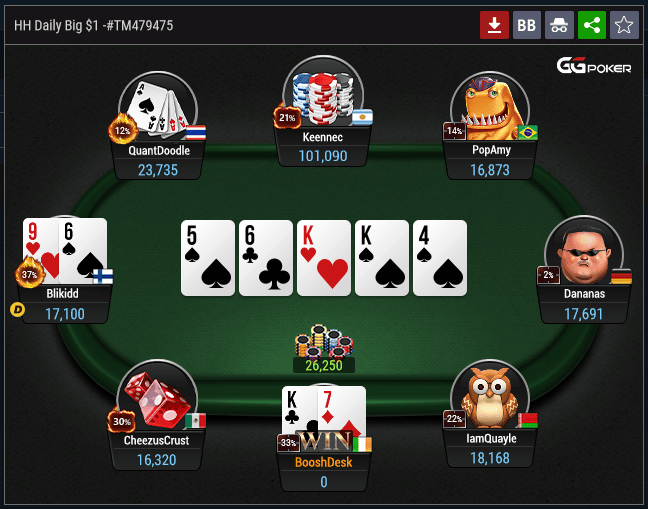
Poker is a card game that can be played by two or more players. It involves betting between players and can be influenced by psychological factors, probability, and game theory. The object is to win the pot, which is the sum of all bets made in a single round. Players may choose to place bets for a variety of reasons, including attempting to read other players or bluffing. There are many different forms of poker, but most involve a complete hand being dealt to each player and one or more betting rounds.
The cards are shuffled and dealt to the players, starting with the player to their left. The first player to act places a bet. Then other players can choose to call, raise or fold.
Position is extremely important in poker, especially pre-flop. It gives you information about your opponents and their intentions, allowing you to play more aggressively or cautiously depending on your position. It also determines how likely you are to win a particular hand and allows you to adjust your strategy accordingly.
Some hands are more powerful than others, and you should always be aware of your opponent’s actions to make the best decision. For example, if you have pocket kings and the flop comes A-8-5 then it is likely that your opponent has a strong pair or a straight, so you should raise to protect your hand.
After the flop has been placed on the board it’s time for another round of betting. The dealer will then place a fifth card on the board, which everyone can use. At this point you should try to figure out what your opponent’s chances of making a good hand are and if they are worth continuing with their current bet.
You should also be aware of your own cards and the community cards. It is considered poor form to chat about your own cards or those of other players, as this can change mathematical calculations and the strategy of other players. It is also bad etiquette to reveal your cards before other players have had the chance to see them, so always wait for your turn.
When it is your turn to act, you can say “call” or “I call” to bet the same amount as the person to your right. You can also say “raise” or “I raise” to add more money to the pot. You can also “fold” if you don’t want to compete for the pot. However, be careful not to fold too often as it will make you a less profitable player. Also, be sure to keep track of your wins and losses as you play poker. It is a fun and exciting game that can be very addictive! Keep practicing and watch experienced players to build your instincts. This will help you develop fast instincts that can lead to success. Good luck!